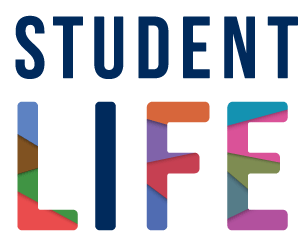Posted on May 6, 2025
By Sarah Ryeland-Etienne
Accessibility Services on the St. George Campus has released a new report outlining the work the office has done in response to the University of Toronto Calls to Action on Truth and Reconciliation.
In 2019-20, the team at Accessibility Services began offering students the opportunity to identify their racial and cultural identities while registering for services. They also began to critically examine the intersection of Indigeneity and disability, and the concept of ‘disability’ itself.
“While colonial mindsets and approaches have informed our work in the past (and up to the present day), there exists through our Truth and Reconciliation efforts a growing opportunity to address these issues and build a more supportive and culturally appropriate space for all our students” says Michael Nicholson, Director of Accessibility Services, St. George Campus.
This prompted the beginning of Accessibility Services’ journey toward answering the University of Toronto’s calls to action.
Through the creation and enhancement of spaces, cultural awareness training, the hiring of Indigenous staff members, addressing barriers for Indigenous students and creating peer mentorship opportunities, the team has worked diligently over the past six years to improve the Indigenous student experience.
Erin Martin and Elizabeth Jeffrey have both taken on roles within Accessibility Services during this time. As Indigenous Liaison, part of Martin’s role is to support Indigenous students as they are introduced to the service.
“When Indigenous students are registering with Accessibility Services, it’s important that the process honors their traditions and ways of knowing,” says Martin. “I work to support students in finding pathways to registration that are rooted in their identities and experiences, rather than relying solely on Western medical frameworks.
As Indigenous Accessibility Advisor, Jeffery provides both support and visibility.
“Instead of being located at Accessibility Services like many of my colleagues, my office is at First Nations House,” she says. “That visibility makes a big difference to the community. Students, whether they’re registered with Accessibility or not, see me in the space and recognize me as a part of the network of support that’s available on campus. That has a lot of impact.”
While the team at Accessibility Services has made great strides toward answering the University’s calls to action, Nicholson says there is still work to be done.
“This report does not represent the end of our efforts, but rather it is the end of the beginning of our efforts,” he says. “There is still much, much work and change that needs to be accomplished, and we look forward to continuing this journey as a service.”
To learn more about the work being done, read the Accessibility Services (St. George Campus) Response to the University of Toronto Calls to Action on Truth and Reconciliation (PDF).




